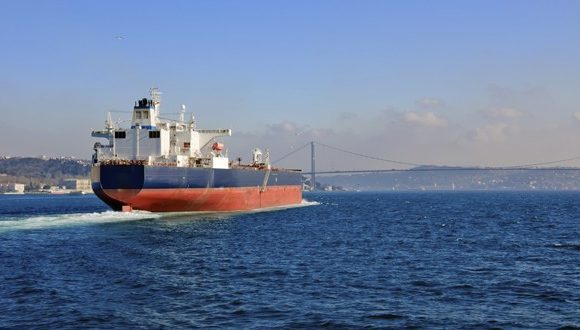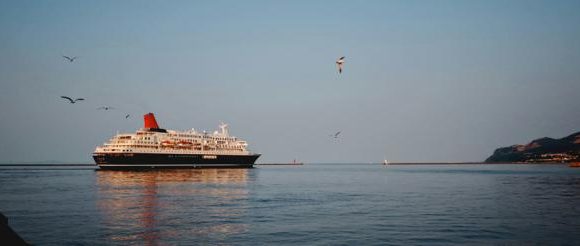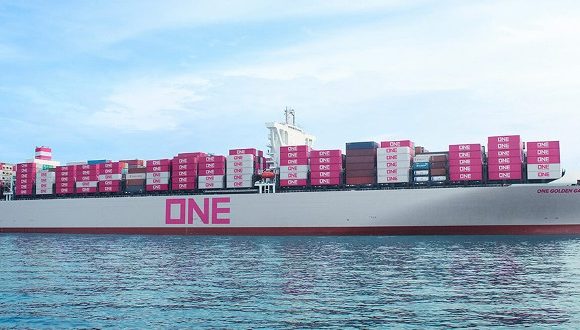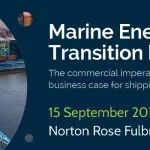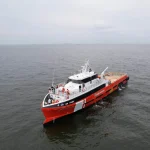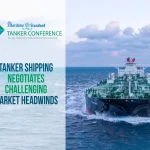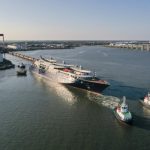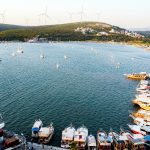The Next Wave: Green Corridors can get the ball rolling on the transition to zero-emission shipping
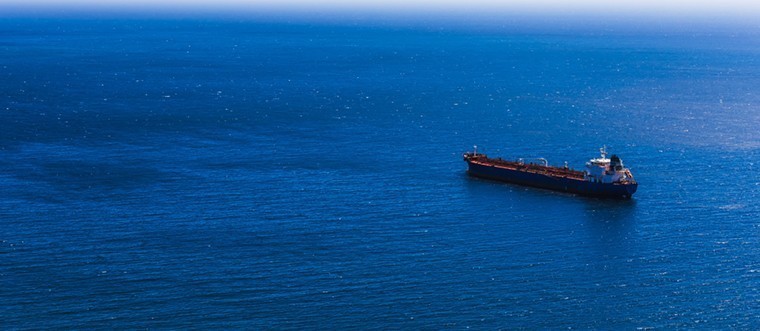
Zero-emission fuels and vessels must start being deployed at scale over the next decade to achieve full decarbonization of the shipping sector by 2050. Scaling the first pilots and demonstrations into industry-wide solutions will be challenging, given the complex nature of the global shipping industry. Produced for the Getting to Zero Coalition, the new study ‘The Next Wave: Green Corridors’ shows that developing Green Corridors can cut through this complexity and accelerate the transition to zero-emission shipping.
In 2020, the Getting to Zero Coalition – a partnership between the Global Maritime Forum, Friends of Ocean Action and World Economic Forum – and the Energy Transitions Commission outlined the business case for a commercial-scale zero-emission pilot in The First Wave: A Blueprint for ZeroEmission Shipping. In 2021, it is already clear that it is necessary to raise ambitions to more than pilots.
The new study, ‘The Next Wave: Green Corridors’, looks at how green corridors – specific trade routes between major port hubs where zero-emission solutions are demonstrated and supported – can be conceived, prioritized, and designed to accelerate the speed of shipping’s transition.
“Green Corridors can help simplify the challenges of zero-emission shipping, bringing solutions to the waterfaster and at a meaningful scale. The maritime ecosystem is embarking on a journey to a transformed, zeroemission shipping sector. The task ahead is complex, but not impossible,” says Johannah Christensen,
CEO of the Global Maritime Forum.
The study shows that green corridors can leverage favourable conditions for accelerated industry action and allow policy makers to create an enabling ecosystem with targeted regulatory measures, financial incentives, and safety regulations. In these contexts, the mutually reinforcing actions needed from industry and policymakers to decarbonize shipping become more straightforward, creating end-to-end solutions that can be replicated globally.
“Green corridors will enable us to go from ambition to action. However, there will still be a cost gap between fossil-based shipping and zero-emission shipping of the order of 25% to 65%. Targeted government action to close that cost gap on corridors could pay big dividends for the transition overall,” says
Faustine Delasalle,
Co-Executive Director, Mission Possible Partnership.
The Next Wave draws its conclusions based on studies of three different corridors, each representing a different kind of opportunity for the transition: the Australia-Japan iron ore corridor, the AsiaEurope container route, and the Korea-Japan-US pure car carrier (PCC) corridor. The case studies were undertaken in consultation with more than 30 companies across the value chain, including many who are active on the routes in question.
“For zero-emission shipping to be successful, it must be an economically competitive option for companies like Star Bulk. Green Corridors are trading routes where policy support and collaboration in the industry could ensure that benefits to first movers outweigh the costs and the risks that they are taking,” says
Charis Plakantonaki,
Chief Strategy Officer, Star Bulk Carriers Corp.
On all green corridors, the success factors are likely be similar: corridor-level consensus on fuel pathways, policy support to help close the cost-gap for higher-cost zero-emission fuels, and valuechain initiatives to pool demand. Aligning on a corridor-specific decarbonisation roadmap based on these factors could provide all stakeholders with the confidence that is needed to invest, coordinate, and deliver the solutions at scale required by 2030.
The ‘The Next Wave: Green Corridors’ report was undertaken at the initiative of the Getting to Zero Coalition’s Motivating First Movers workstream. The Global Maritime Forum and Mission Possible Partnership, with analysis from the Energy Transitions Commission and McKinsey & Company, have worked together to deliver this final report.
Read the full report ‘The Next Wave: Green Corridors’ here.
For reference, read the first report ‘The First Wave – A blueprint for commercial-scale zeroemission shipping pilots’ here.
For further information: Head of Communications, Sofie Rud, rud@globalmaritimeforum.org or +45 2810 2332
About the Getting to Zero Coalition
The Getting to Zero Coalition, a partnership between the Global Maritime Forum, Friends of Ocean Action and World Economic Forum, is a community of ambitious stakeholders from across the maritime, energy, infrastructure and financial sectors, and supported by key governments, IGOs and other stakeholders, who are committed to the decarbonisation of shipping. The ambition of the Getting to Zero Coalition is to have commercially viable zero-emissions vessels (ZEVs) operating along deep-sea trade routes by 2030, supported by the necessary infrastructure for scalable netzero-carbon energy sources including production, distribution, storage, and bunkering.
About Global Maritime Forum
The Global Maritime Forum is an international not-for-profit organisation dedicated to shaping the future of global seaborne trade to increase sustainable long-term economic development and human wellbeing.
About the Mission Possible Partnership
The Mission Possible Partnership (MPP) is an ambitious effort to trigger a net-zero transformation of seven industrial sectors, leveraging the convening power, talent and expertise of world-leading organisations on climate action. MPP comprises four core partners: the Energy Transitions Commission, RMI, We Mean Business Coalition and the World Economic Forum.
About Friends of Ocean Action
Friends of Ocean Action is a unique group of over 55 global leaders from business, international organizations, civil society, science and academia who are fast-tracking scalable solutions to the most pressing challenges facing the ocean. It is hosted by the World Economic Forum in collaboration with the World Resources Institute.
About World Economic Forum
The World Economic Forum is the International Organization for Public-Private Cooperation. The Forum engages the foremost political, business, cultural and other leaders of society to shape global, regional and industry agendas. It was established in 1971 as a not-for-profit foundation and is headquartered in Geneva, Switzerland. It is independent, impartial and not tied to any special interests.
About the Energy Transitions Commission
The Energy Transitions Commission (ETC) is a coalition of global leaders from across the energy landscape: energy producers, energy-intensive industries, equipment providers, finance players and environmental NGOs. Our mission is to work out how to build a global economy which can both enable developing countries to attain developed world standards of living and ensure that the world limits global warming to well below 2°C and as close as possible to 1.5°C. For this objective to be reached, the world needs to achieve net-zero greenhouse gas emissions by around mid-century.
About McKinsey & Company
McKinsey & Company is a global management consulting firm with people in 65 countries helping leading organisations across the private, public, and social sectors create Change that Matters.

